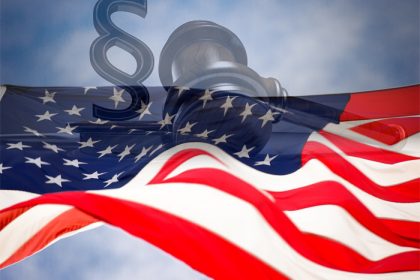The US trademark law was modernized (TMA) at the turn of the year: the changes are essential for the strategy on opposition and lawsuits against unauthorized trademark applications in the USA. Above all, the older trademark owners are strengthened in opposition and actions against unauthorized US trademark applications.

This is because the amendments, which modernize the existing U.S. trademark law with the signing of the Trademark Modernization Act of 2020 (TMA) (signed on December 27, 2020), relate primarily to the assertion of claims for injunctive relief, challenges to a U.S. trademark for non-use of the mark, and opposition to unauthorized trademark applications. The aim of the amendments is to strengthen the older trademark owners in opposition and actions against unauthorized U.S. trademark applications.
For quite some time, the US has been confronted with inaccurate and false indications of use in trademark applications, the US press speaks of “flooding with foreign trademark applications” – often coming from China.
Assertion of claims for injunctive relief
New and essential to the assertion of injunctive relief is the amendment of Section 34(a) of the Trademark Act of 1946 (15 U.S.C. 1116(a)). Accordingly, the basic statutory presumption now is that “irreparable harm” always results from trademark infringement. While this presumption can be rebutted, from now on the defendant has the burden of proof.
This change will make it much easier for trademark owners to seek injunctive relief, because proving “irreparable harm” in trademark cases could previously be time-consuming and, above all, costly, e.g., through expensive consumer surveys. The new automatic presumption significantly increases the likelihood of the trademark owner not only being able to assert a claim for injunctive relief, but also to obtain it.
The new statutory presumption of “irreparable harm” applies in U.S. federal trademark and unfair competition cases.
Challenging a US trademark due to non-use of the trademark
In the USA – as in Germany and the EU – a prerequisite for the maintenance of a trademark is its commercial use. If a trademark is used little, not at all or in an altered form, it can be challenged. However, in the EU and also in Germany, a grace period of 5 years applies for the start of serious use of a trademark, for example in the case of a start-up.
The TMA now provides two new procedures for third parties to make challenges for non-use of a trademark easier and faster. This allows third parties to initiate ex parte proceedings before the U.S. Patent and Trademark Office (USPTO) to cancel or reexamine a trademark registration on the basis of as
- Ex parte cancellations, for trademark registrations that have never been used in commerce or have never been used for the goods or services listed in the registration.
A request for cancellation must be filed within 3 years of the date the registration was issued – and - Ex parte reviews or reexaminations for trademark registrations that are not (no longer) in use.
A request for review must be filed within 5 years from the date of grant of the restriction
Opposition against unauthorized trademark applications: accelerated
The opposition against unauthorized trademark applications is also to be significantly accelerated, namely to be able to conduct the opposition proceedings with full evidence even before the trademark application is published. Already during examination, evidence against the registration of a pending application shall be able to be filed directly into the USPTO file.
The USPTO is now required by the TMA to establish a corresponding procedure within this year.
The background to this is the past practice under which a USPTO examiner has broad discretion to ignore evidence of challenges to a trademark application. Therefore, until now, challenges to trademark applications that have not yet been registered have usually been nothing more than informal letters of protest.
This is now to change with the new procedure for opposition against unauthorized trademark applications and at the same time makes it even more attractive to carry out professional trademark monitoring. This is because unauthorized trademark registrations can be prevented more easily and cost-effectively, especially without the need for litigation. Please do not hesitate to contact us if you are interested.
Shorter response periods for trademark applicants in the USA
Faster and better for senior trademark owners, the new changes are intended to make U.S. trademark law work better, so the TMA also provides for shorter response periods for the USPTO. Instead of the previous six-month period, the USPTO can now set shorter deadlines (between 60 days and six months) for responding to office actions. Trademark applicants may therefore need to respond more quickly to obtain extensions of time.
Incidentally, the requirement for trademark applicants in the U.S. who are not U.S. residents to retain U.S.-licensed attorneys to file and prosecute trademark applications has already been in effect since August 2019. As of February 2020, an email address is also required for every trademark applicant. Feel free to contact us if you are interested in filing a US trademark application.
Our attorneys have many years of expertise in trademark law as well as in the entire field of intellectual property and are authorized to represent you before any court – in Germany and also internationally. We also have an international network of licensed attorneys.
Please feel free to contact us if you are interested.
Sources:
Bill zum TMA 2020 des U.S. Kongress
Image:
own creation of oohhsnapp | pixabay.com | CCO License and Inactive_account_ID_249 | pixabay.com | CCO License








Leave a Reply